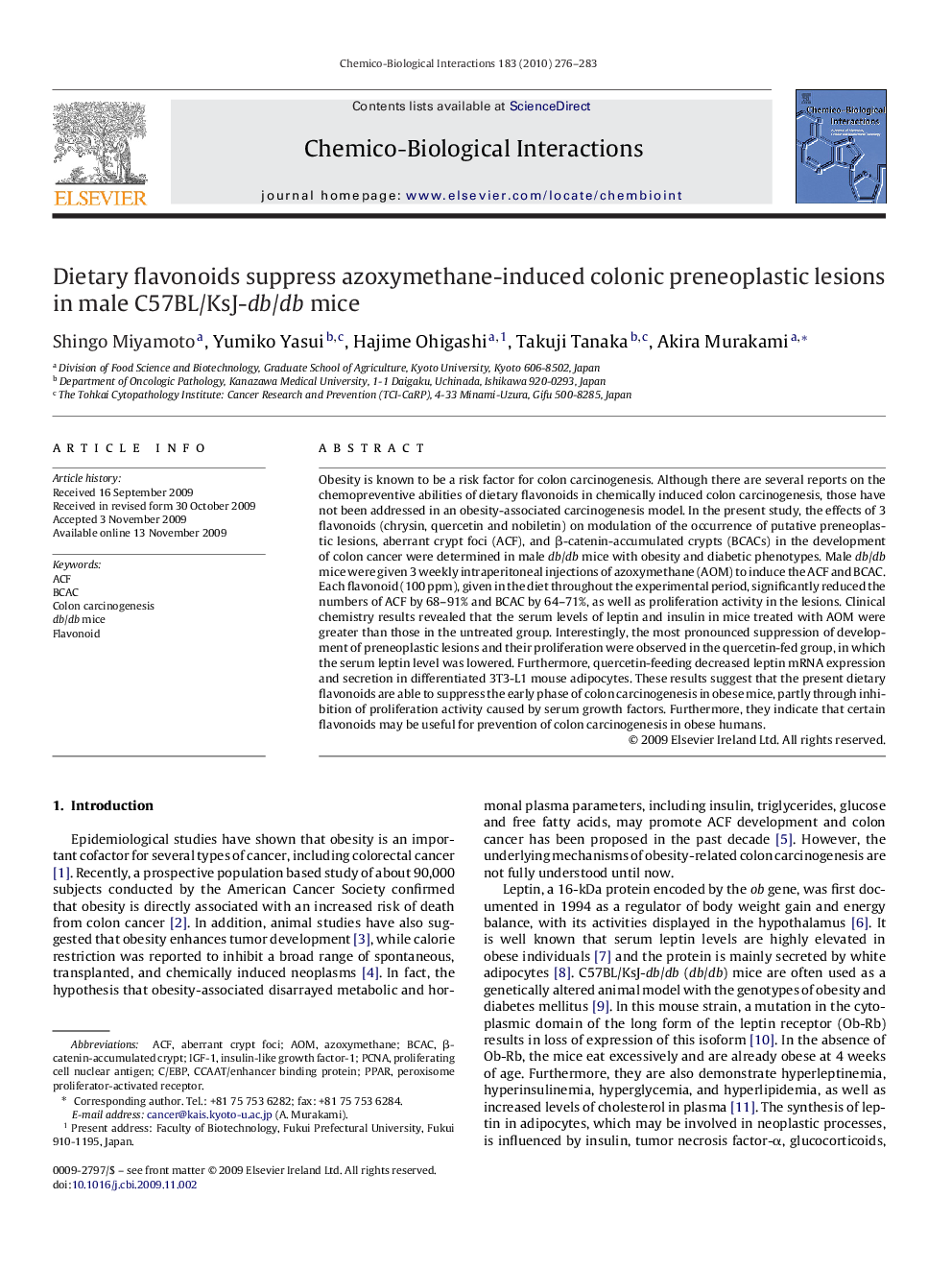| Article ID | Journal | Published Year | Pages | File Type |
|---|---|---|---|---|
| 2581345 | Chemico-Biological Interactions | 2010 | 8 Pages |
Obesity is known to be a risk factor for colon carcinogenesis. Although there are several reports on the chemopreventive abilities of dietary flavonoids in chemically induced colon carcinogenesis, those have not been addressed in an obesity-associated carcinogenesis model. In the present study, the effects of 3 flavonoids (chrysin, quercetin and nobiletin) on modulation of the occurrence of putative preneoplastic lesions, aberrant crypt foci (ACF), and β-catenin-accumulated crypts (BCACs) in the development of colon cancer were determined in male db/db mice with obesity and diabetic phenotypes. Male db/db mice were given 3 weekly intraperitoneal injections of azoxymethane (AOM) to induce the ACF and BCAC. Each flavonoid (100 ppm), given in the diet throughout the experimental period, significantly reduced the numbers of ACF by 68–91% and BCAC by 64–71%, as well as proliferation activity in the lesions. Clinical chemistry results revealed that the serum levels of leptin and insulin in mice treated with AOM were greater than those in the untreated group. Interestingly, the most pronounced suppression of development of preneoplastic lesions and their proliferation were observed in the quercetin-fed group, in which the serum leptin level was lowered. Furthermore, quercetin-feeding decreased leptin mRNA expression and secretion in differentiated 3T3-L1 mouse adipocytes. These results suggest that the present dietary flavonoids are able to suppress the early phase of colon carcinogenesis in obese mice, partly through inhibition of proliferation activity caused by serum growth factors. Furthermore, they indicate that certain flavonoids may be useful for prevention of colon carcinogenesis in obese humans.
